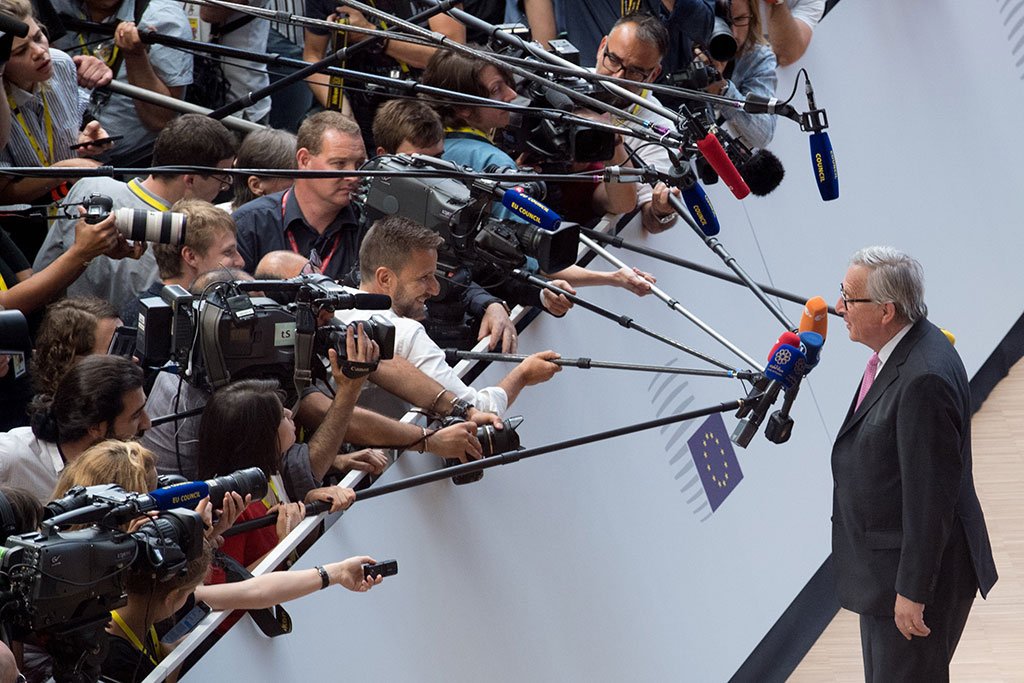
Europe, the EU, is not doing as badly as is often claimed. But institutional imbalances are emerging that may trigger a crisis. The turnout for the elections to the European Parliament was 51%, eight percentage points higher than last time, halting a steady decline since 1979, thanks in part to the threat of a Europhobic far right that, while important, failed to secure a position of real influence. A cordon sanitaire has been erected around it in Parliament. The traditional parties also suffered setbacks, as was to be expected in fragmented societies. The new appointments in the main institutions –pending the imminent ratification of the next president of the European Commission by the Parliament– have tipped scales back in favour of the European Council, in other words the governments, in a Union that is a union of states and peoples, but it is problematic nonetheless.
No provision is made in the treaties for the Spitzenkandidaten system, although it is not prohibited either. It sought to use the elections to install a lead candidate at the head of the European Commission. It was something of a democratic sham, especially in an era when electorates are fragmented, and shall remain so until there are European-wide lists for the Parliament, something the governments reject. Who in Spain, for example, is really familiar with the German candidate Manfred Werner, from the European People’s Party, a man who, as the French president Emmanuel Macron rightly perceived, had neither the political stature nor executive experience? Nor was there a candidate with a clear majority in the new European Parliament.
The European Council, not without difficulties, opted for the German politician Ursula von der Leyen, unknown to most European citizens. She still needs to be ratified by the European Parliament, presided over by the Italian socialist David Sassoli (Italy always salvages something). Having reached this juncture there is really no viable alternative now to von der Leyen, and if the European Parliament rejects her –the resurgent Greens, who were left out of the game musical chairs, may prove decisive– a major institutional crisis is in store. Clearly however the amount of support von der Leyen musters –especially if she relies on the votes of the far right for her confirmation– will impinge on the credibility of this convinced pro-European, who advocates a European defence that will take some time to generate a certain “strategic autonomy”.
The lead candidate system had changed the institutional balances and tilted the European Commission even further towards the Parliament and away from the Council. Restoring them will not go amiss, although this always runs the risk of lapsing into intergovernmental arrangements and diverging from the European ideal. It also appears positive – albeit involving an excess of conservatives – that the European Central Bank, the other true power centre in the EU, will be led by Christine Lagarde, despite the fact she does not come from a banking background, private or central, although she does come from the IMF, an institution that acquired fresh importance in the financial crisis when it came to European bail-outs. In other words, she will be familiar with her new portfolio. The choice of the Belgian liberal Charles Michel to lead the European Council seems a reasonable decision – although he is the second Belgian in the post – to continue driving more European integration, although it will not be for the United States of Europe that von der Leyen once called for.
Having a German and a Frenchwoman in charge of these two institutions, which are central to the EU and original in their design, is important. They will have the support of their respective capitals, something that was a major factor in other EU eras, like that of Jacques Delors in Brussels with François Mitterrand in Paris. There is a risk however of the necessary but no longer sufficient Franco-German axis having too much heft. It should not be overlooked that the Aachen Treaty, signed by Macron and Merkel on 22 January this year to rekindle this relationship, relegated the EU to a very secondary role. Even though the two countries are essential to the future of the project, Franco-German affairs should not be conflated with Europe’s.
The strength of the forthcoming Commission will be gauged not only by its president but also by the calibre of many of the members of the College of Commissioners. They will not lack challenges and problems to show it. It is reassuring that the Dutch socialist Frans Timmermans and the energetic Danish liberal Margrethe Vestager will continue to be part of the Commission, as well as the Spaniard Josep Borrell at the head of the difficult common foreign and defence policy, caught in the limbo between EU and intergovernmental currents. Von der Leyen will need a collegiate and coalition mindset, rather than a presidential one.
Having said all this, the recent decisions have revealed divisions, winners and losers at the heart of the EU, principally among the European Council and a Parliament that feels it has lost, after years of chalking up regular victories. But the division that separates the western (a word that is used increasingly frequently in Brussels) part of the EU from the eastern part, the old Europe from the new, which was excluded from the share-out, is serious. The greatest danger however comes from the internal fragmentation of individual European societies, something that has already been echoed in the additional fragmentation of the European Parliament and the political systems of many member states.


